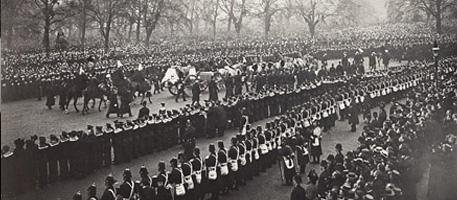Steve Beauchampé woke up on Tuesday morning and thought the Queen had died. But it was worse than that.
For just for a few minutes there on Tuesday morning after hearing that Prime Minster Theresa May was to make a statement in Downing Street I feared perhaps that the Dear Leader had gone, that she’d checked out just three days shy of her 91st birthday. But I soon realised that such a momentous event would likely be announced instead with a small note pinned to the railings outside Buckingham Palace and an accompanying tweet, something like: @QueenLilibet passed in peace 07:04 Wednesday, lower flags, mourning starts now. Long live @KingCharlesIII. Sad!
Instead May had come to tell us that because the opposition parties and the House of Lords have had the temerity to criticise, scrutinise and try to hold her accountable for the type of Brexit deal she wishes to negotiate she was calling a General Election, just so that they’d know who’s boss. Now Theresa May doesn’t really do consensual politics and she doesn’t seem to think much of accountability either. Her statement (much of which she repeated the following day in the House of Commons) reeked of haughty arrogance, with anyone who deigns to question her approach effectively branded a traitor and a threat to the nation’s future and security.
She’ll have to get used to such insurrection however as the Lib Dems, UKIP and the SNP will spend much of the next two months talking of little else but Brexit, a subject that May herself will also be keen to luxuriate in though from a somewhat different perspective from most of her upstart opponents.
There are myriad reasons why, despite repeated assurances to the contrary, the Prime Minister has performed yet another volte face and called a General Election, but the increasing realisation that she enters the Brexit negotiations in a decidedly weak position and is likely to exit them with a deal many voters will be more than disappointed with, is surely near the top of the list.
Because an election in 2020 could well have taken place with the UK suffering the immediate consequences of leaving the single market and customs union, yet still unable to lower immigration to the levels demanded by hardcore Brexiteers. This, when the Union could be at breaking point, hoped for trade deals still some way from being concluded and with an EU exit bill perhaps in excess of £30bn to be paid, just when the Prime Minister might wish to boost the economy or offer voters pre-election tax cuts.
So May buys herself an extra year or two post-Brexit before facing the electorate and demonstrates that it is she, and not an Act of Parliament (even one that she voted for), that will determine when a General Election will next take place.
So here we go with what might well be the most unwanted General Election campaign for decades, as well as one of the longest. Over seven weeks of re-running the EU referendum, of endless discussion of Labour’s internal strife, of NHS underfunding, of Indyref 2, of reporters shouting questions across roads at politicians which they know will be ignored, of senior party figures being asked to rule in or out things and thus forcing them to say something that they will later come to regret.
Over seven weeks of bakery workers and shoppers and people in pubs and students and hill farmers in Wales and golfers in Aberdeenshire all being asked to comment at a moment’s notice on things they might know very little about. Over seven weeks of knowing that, like most other voters, I live in a constituency that will not change hands, one whose MP has been in Parliament for what seems like nearly a century, has a majority of about 90,000 and who was reselected without challenge as usual.
Over seven weeks of a Lib Dem comeback almost inevitably destined to be thwarted by our First Past The Post voting system, of having your letter box stuffed with literature that you’re not going to read, and of the audience members on political discussion shows trying to outdo each other by asking the most difficult, directest question imaginable in an effort to catch out a senior political figure. Almost seven weeks of Nigel Farage and Ian Duncan Smug, of Theresa May repeating the words “coalition of chaos” and Jeremy Corbyn threatening to soak the rich.
Thanks a lot Mrs May, thanks a bleedin’ lot.
